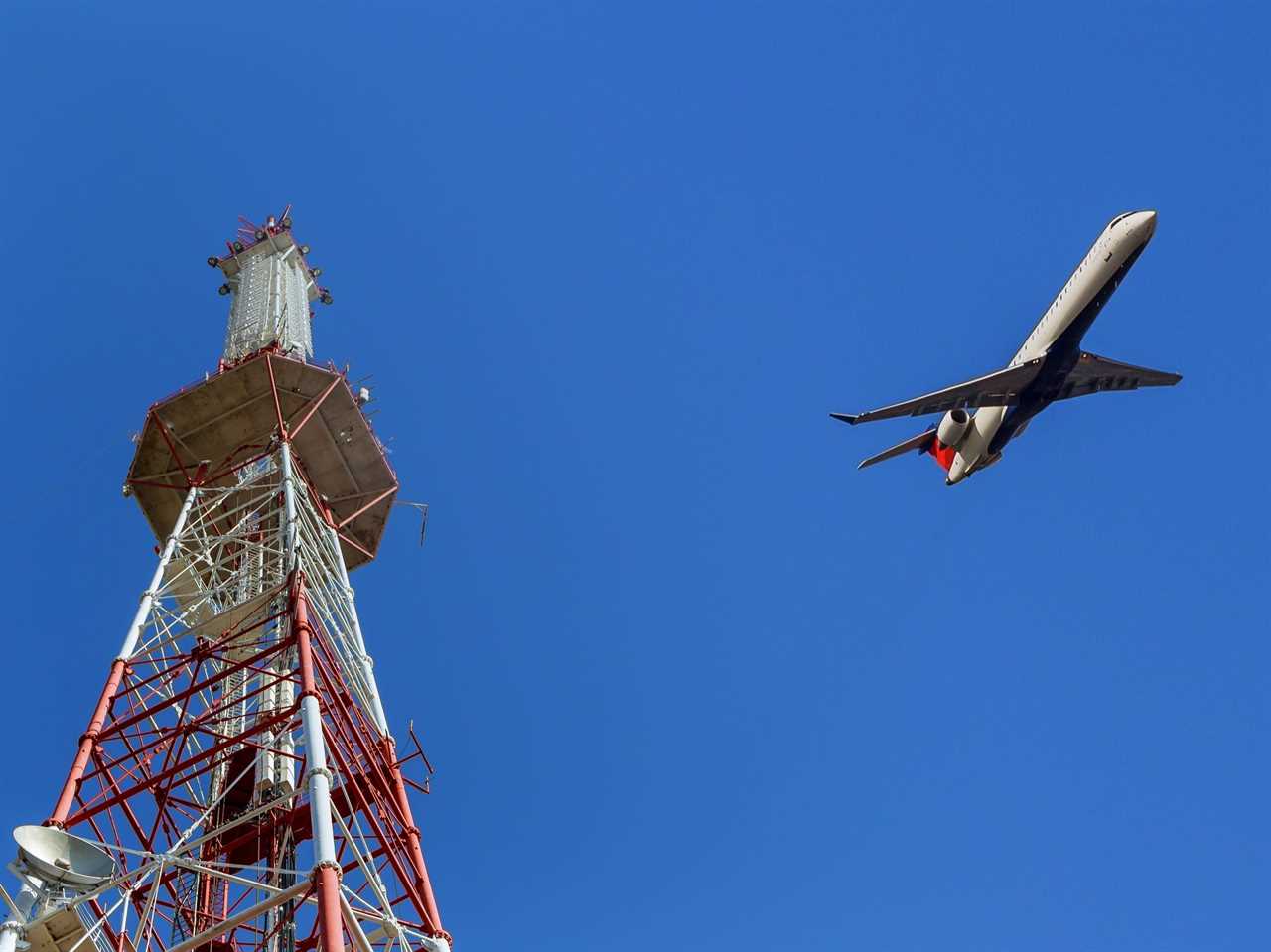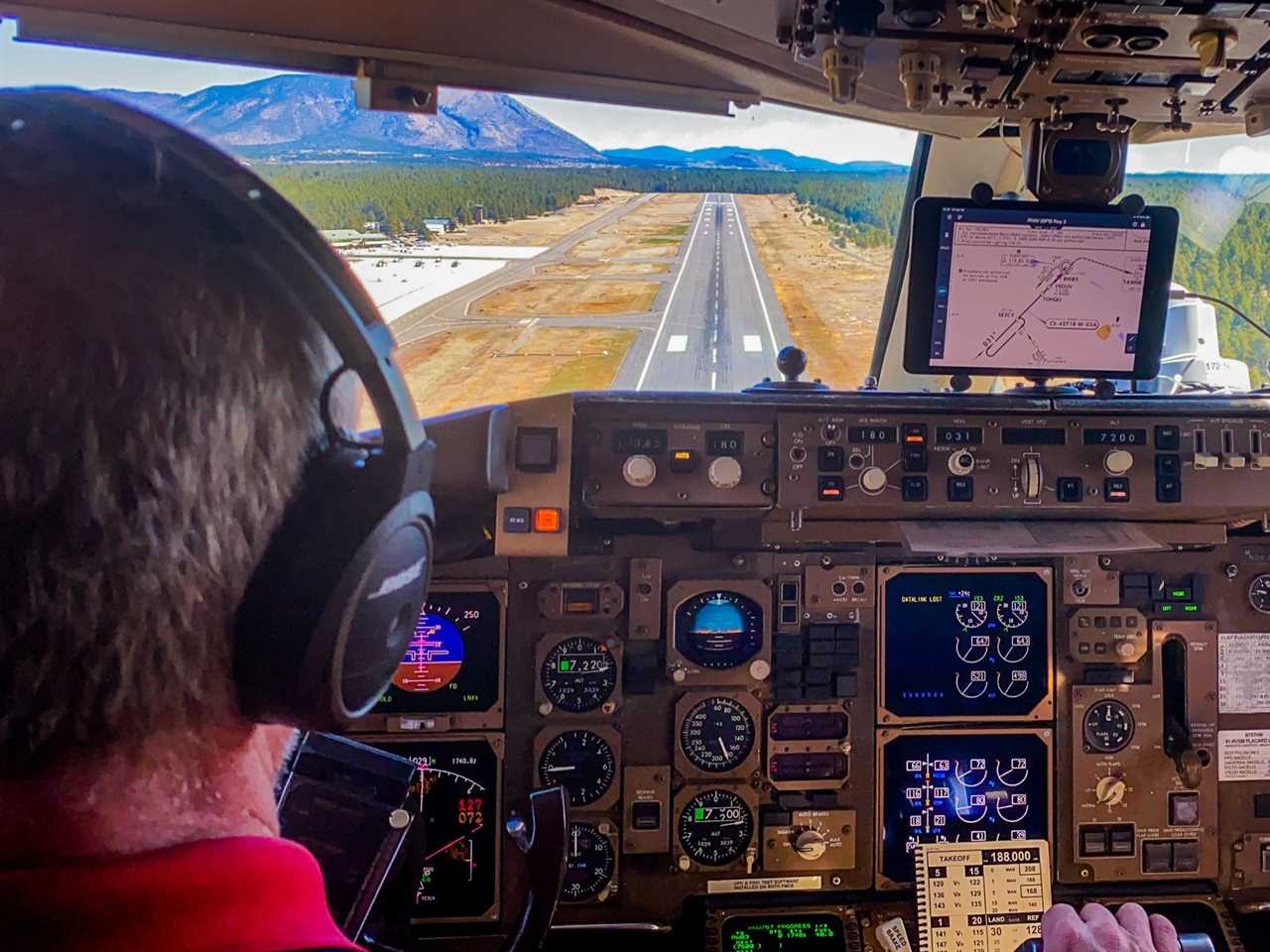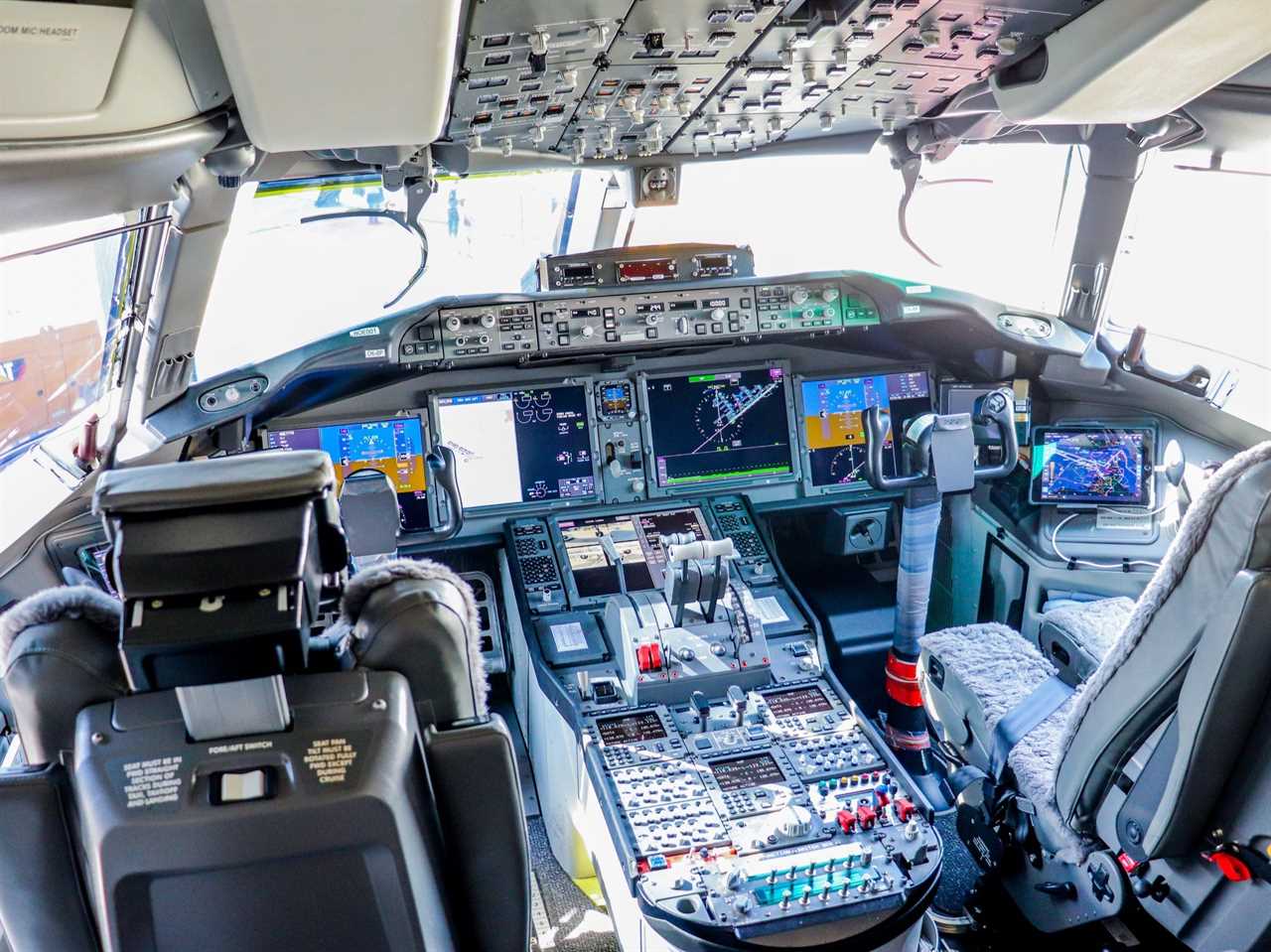
Aviation is rallying against the current rollout of 5G communications.Shutterstock.com
-
Concerns are being raised by aircraft manufacturers and airlines about 5G communications.
-
Current 5G rollout could affect an aircraft's radio-altimeter. This is used to determine altitude above the ground in critical situations such as landings.
-
The industry of wireless communications is still committed to a January rollout of 5G.
New challenges are coming to the aviation industry in the new year.
Telecommunications giants are preparing for the long-awaited rollout 5G communications, which is aimed at increasing wireless connectivity in the US. The plan is being resisted by airlines, aircraft manufacturers and aviation trade groups, who fear 5G could have a negative impact on aviation safety.
One important issue is how 5G C-Band communication at 3.7-3.98GHz GHz will affect the radar altimeters on planes, also known radio altimeters.
Radio altimeters are described by the Radio Technical Commission for Aeronautics as "the only sensor aboard a civil aircraft that provides a direct measurement about the aircraft's clearance height over terrain or other obstacles."
For example, aircraft flying over mountainous terrain might use radio altimeters to determine their distance from the ground. Radio altimeters may also be used by aircraft to determine their altitude above the ground compared to their altitude at the mean sea level.

A Honeywell Aerospace Boeing 757 testbed aircraft testing a single-antenna radio altimeter, or SARA.Thomas Pallini/Insider
Opponents argue that 5G communications could interfere with altimeters during critical phases. In its report analyzing the impacts of 5G communication on aviation, the RTCA stated that failures of these sensors could lead to catastrophic events resulting in multiple deaths.
The House of Representatives Committee on Transportation and Infrastructure highlighted one such example: the Turkish Airlines Boeing 737-800, which was involved in a fatal plane crash in 2009. It had been notified by the Dutch Safety Board that it received an "erroneous reading" of its radio altimeters.
In early December, the Federal Aviation Administration addressed potential problems arising from 5G's rollout with regulations known as "airworthiness Directives". As a result, airlines and other operators of aircraft are required to restrict operations that require a radio-altimeter "in the presence 5G CBand interference."
The FAA stated that "this [airworthiness directive] was initiated by a determination radio altimeters can't be relied on to perform their intended function if they are subjected to interference from wireless broadband operations within the 3.7-3.98GHz frequency band (5G-C-Band),"
Airlines claim that the new requirements will severely disrupt their normal operations. Airlines for America, the trade association representing the country's biggest airlines, conducted a survey of its members and released a damning report about how 5G could impact flight operations in 2022.

The cockpit of a Boeing 777X at Dubai Airshow 2021.Thomas Pallini/Insider
The organization stated that the AD could have been applied in arrears for A4A member's 2019 operations. This would mean that approximately 345,000 passenger flight, 32 million passenger and 5,400 cargo flights would be affected by delayed flights, divertions or cancellations.
Boeing and Airbus' American Division, using Airlines For America's findings, wrote to Transportation Secretary Pete Buttigieg requesting that 5G deployment be delayed.
In a letter viewed at Reuters, Boeing CEO Dave Calhoun wrote that "5G interference could adversely impact the ability of aircraft safely operate." Jeffrey Knittel, CEO of Airbus Americas, also wrote:
Verizon Communications, a leader in 5G, pointed out other countries where 5G and aviation co-exist to support the concerns of the aviation industry.
A Verizon spokesperson stated that while safety is paramount, there is no evidence that 5G operations using the C-Band spectrum pose any danger to aviation safety. This is confirmed by real-world experience in dozens countries using this spectrum for 5G.
Airlines for America works with the Aerospace Industries Association (a trade association representing aviation manufacturers and suppliers) and CTIA (the trade organization representing wireless companies) to establish a data-sharing partnership that will help identify problem areas during the 5G rollout.
Insider was provided with a statement by the trio. They stated that "the best technical experts across both industries will work together to identify a pathway forward, in coordination avec the FAA/FCC." We believe that we can reach our common goal of 5G deployment while maintaining aviation safety by working together in good faith and implementing a data-driven solution.
Airlines for America decided not to file an emergency lawsuit Monday against the January 5 rollout. Instead, they announced an agreement with AT&T (and Verizon) to delay 5G implementation to January 19.
This will allow for the rollout to proceed. However, the DOT/FAA would review the data in the months that follow to determine mitigation measures for airports.
AT&T stated in a statement that "we know aviation safety can co-exist, and we are confident further cooperation and technical assessment will resolve any issues."
Did you miss our previous article...
https://11waystomakemoney.com/finance/a-rabbitshaped-rock-is-discovered-in-a-hypedupmoon-cube-discovery-by-chinese-rover
 Make Money OnlineForexInvestingBitcoinVideosFinancePrivacy PolicyTerms And Conditions
Make Money OnlineForexInvestingBitcoinVideosFinancePrivacy PolicyTerms And Conditions
